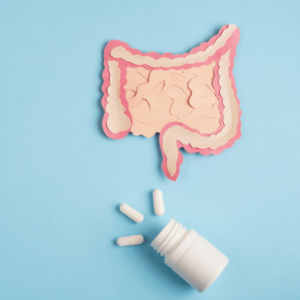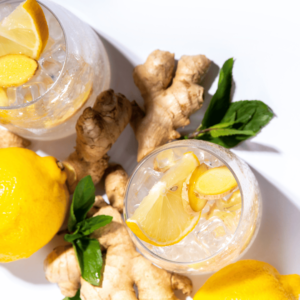Curcumin, the vibrant yellow compound derived from turmeric, is renowned for its potent anti-inflammatory properties and diverse health benefits. Research suggests that curcumin’s efficacy rivals some anti-inflammatory medications in managing conditions like arthritis and inflammatory bowel disease. [4]
Anti-Inflammatory & Antioxidant Effects
Curcumin’s anti-inflammatory action extends beyond pain and swelling reduction. Studies demonstrate its ability to lower key inflammatory markers (CRP, TNF-α, IL-6) associated with chronic diseases. [11,12,17] Additionally, curcumin acts as a powerful antioxidant, boosting the body’s total antioxidant capacity (TAC) and reducing oxidative damage (MDA). This dual action of curcumin makes it a promising natural remedy for various health issues. [11,12,17]
Athletes and active individuals also benefit from curcumin supplementation. It reduces inflammation and oxidative stress, decreases pain and muscle damage, and improves recovery and performance without hindering the natural inflammatory response needed for exercise adaptation. [7,9,12]
A notable study showed short-term curcumin supplementation, combined with piperine (a compound in black pepper that enhances curcumin absorption), improved health markers in critically ill COVID-19 patients. This included reducing inflammation, improving liver function, and increasing haemoglobin levels, highlighting curcumin’s potential as a supportive therapy for COVID-19. [14]
Cardiovascular Health
Its antioxidant properties may contribute to heart health by lowering bad cholesterol (LDL) and triglycerides while raising good cholesterol (HDL). [3] Additionally, curcumin shows promise in improving blood pressure, further supporting cardiovascular well-being.
Neurological Health
Research suggests curcumin’s anti-inflammatory action protects brain cells and improves memory, potentially combating age-related cognitive decline. Early studies suggest a potential role for curcumin in managing depression symptoms. [3] Notably, curcumin-piperine supplementation reduced carotid artery stiffness and inflammation in stroke patients, indicating potential benefits for stroke recovery and prevention. [3]
Furthermore, curcumin enhances brain health by increasing serum BDNF levels. BDNF is crucial for neuron growth and survival, and its deficiency is linked to neurological disorders like Alzheimer’s, Parkinson’s, Huntington’s disease, depression, and anxiety disorders. [16]
Metabolic Benefits
In metabolic health, curcumin positively impacts glucose metabolism and, to a lesser extent, lipid metabolism. [5] Meta-analyses confirm its effectiveness in reducing body weight, waist circumference, and BMI, with bioavailability-enhanced formulas showing the most substantial effects. This suggests curcumin supplementation can be valuable for weight management, especially in individuals with type 2 diabetes. [8,13]
Moreover, curcumin alleviates insulin resistance, a key factor in type 2 diabetes and Alzheimer’s disease. By reducing molecules involved in insulin resistance, curcumin offers a novel approach to managing and preventing these conditions. [10]
Additional Benefits and Considerations
Curcumin has traditionally addressed digestive issues, and research supports this use. It may stimulate bile production and reduce gut inflammation, potentially aiding digestion in individuals with indigestion or irritable bowel syndrome. [6] Studies also show curcumin effectively manages osteoarthritis symptoms, offering natural pain relief. [6]
Interestingly, curcumin supplementation increased vitamin D levels and improved liver function in women with PMS and dysmenorrhea, suggesting potential benefits for women’s health. [2]
Curcumin’s bioavailability is low when taken alone, meaning the body doesn’t absorb it well. However, combining it with black pepper and/or healthy fats like olive oil or avocado oil significantly improves absorption. [1]
Research has demonstrated that CPS can improve physical function, pain, and mental/physical health scores, especially when taken for at least six months. Interestingly, females and those who exercise more may experience even greater improvements, suggesting that CPS may be particularly beneficial for these populations. However, higher doses of CPS may be needed to prevent a decline in quality of life over time in less active individuals. [6]
References
- Balakumar P, Alqahtani T, Alqahtani A, Lakshmiraj RS, Singh G, Rupeshkumar M, Thangathirupathi A, Sundram K. A Unifying Perspective in Blunting the Limited Oral Bioavailability of Curcumin: A Succinct Look. Curr Drug Metab. 2022;23(11):897-904. doi: 10.2174/1389200223666220825101212. PMID: 36017834.
- Arabnezhad L, Mohammadifard M, Rahmani L, Majidi Z, Ferns GA, Bahrami A. Effects of curcumin supplementation on vitamin D levels in women with premenstrual syndrome and dysmenorrhea: a randomized controlled study. BMC Complement Med Ther. 2022 Jan 22;22(1):19. doi: 10.1186/s12906-022-03515-2. PMID: 35065636; PMCID: PMC8784001.
- Boshagh K, Khorvash F, Sahebkar A, Majeed M, Bahreini N, Askari G, Bagherniya M. The effects of curcumin-piperine supplementation on inflammatory, oxidative stress and metabolic indices in patients with ischemic stroke in the rehabilitation phase: a randomized controlled trial. Nutr J. 2023 Dec 11;22(1):69. doi: 10.1186/s12937-023-00905-1. PMID: 38082237; PMCID: PMC10712118.
- Shep D, Khanwelkar C, Gade P, Karad S. Safety and efficacy of curcumin versus diclofenac in knee osteoarthritis: a randomized open-label parallel-arm study. Trials. 2019 Apr 11;20(1):214. doi: 10.1186/s13063-019-3327-2. PMID: 30975196; PMCID: PMC6460672.
- Altobelli E, Angeletti PM, Marziliano C, Mastrodomenico M, Giuliani AR, Petrocelli R. Potential Therapeutic Effects of Curcumin on Glycemic and Lipid Profile in Uncomplicated Type 2 Diabetes-A Meta-Analysis of Randomized Controlled Trial. Nutrients. 2021 Jan 27;13(2):404. doi: 10.3390/nu13020404. PMID: 33514002; PMCID: PMC7912109.
- Mathieu S, Soubrier M, Peirs C, Monfoulet LE, Boirie Y, Tournadre A. A Meta-Analysis of the Impact of Nutritional Supplementation on Osteoarthritis Symptoms. Nutrients. 2022 Apr 12;14(8):1607. doi: 10.3390/nu14081607. PMID: 35458170; PMCID: PMC9025331.
- Suhett LG, de Miranda Monteiro Santos R, Silveira BKS, Leal ACG, de Brito ADM, de Novaes JF, Lucia CMD. Effects of curcumin supplementation on sport and physical exercise: a systematic review. Crit Rev Food Sci Nutr. 2021;61(6):946-958. doi: 10.1080/10408398.2020.1749025. Epub 2020 Apr 13. PMID: 32282223.
- Unhapipatpong C, Polruang N, Shantavasinkul PC, Julanon N, Numthavaj P, Thakkinstian A. The effect of curcumin supplementation on weight loss and anthropometric indices: an umbrella review and updated meta-analyses of randomized controlled trials. Am J Clin Nutr. 2023 May;117(5):1005-1016. doi: 10.1016/j.ajcnut.2023.03.006. Epub 2023 Mar 9. PMID: 36898635.
- Ms SAB, Waldman PhD HS, Krings PhD BM, Lamberth PhD J, Smith PhD JW, McAllister PhD MJ. Effect of Curcumin Supplementation on Exercise-Induced Oxidative Stress, Inflammation, Muscle Damage, and Muscle Soreness. J Diet Suppl. 2020;17(4):401-414. doi: 10.1080/19390211.2019.1604604. Epub 2019 Apr 26. PMID: 31025894.
- Thota RN, Rosato JI, Dias CB, Burrows TL, Martins RN, Garg ML. Dietary Supplementation with Curcumin Reduce Circulating Levels of Glycogen Synthase Kinase-3β and Islet Amyloid Polypeptide in Adults with High Risk of Type 2 Diabetes and Alzheimer’s Disease. Nutrients. 2020 Apr 9;12(4):1032. doi: 10.3390/nu12041032. PMID: 32283762; PMCID: PMC7230780.
- Dehzad MJ, Ghalandari H, Nouri M, Askarpour M. Antioxidant and anti-inflammatory effects of curcumin/turmeric supplementation in adults: A GRADE-assessed systematic review and dose-response meta-analysis of randomized controlled trials. Cytokine. 2023 Apr;164:156144. doi: 10.1016/j.cyto.2023.156144. Epub 2023 Feb 15. PMID: 36804260.
- Fernández-Lázaro D, Mielgo-Ayuso J, Seco Calvo J, Córdova Martínez A, Caballero García A, Fernandez-Lazaro CI. Modulation of Exercise-Induced Muscle Damage, Inflammation, and Oxidative Markers by Curcumin Supplementation in a Physically Active Population: A Systematic Review. Nutrients. 2020 Feb 15;12(2):501. doi: 10.3390/nu12020501. PMID: 32075287; PMCID: PMC7071279.
- Yang K, Chen J, Zhang T, Yuan X, Ge A, Wang S, Xu H, Zeng L, Ge J. Efficacy and safety of dietary polyphenol supplementation in the treatment of non-alcoholic fatty liver disease: A systematic review and meta-analysis. Front Immunol. 2022 Sep 9;13:949746. doi: 10.3389/fimmu.2022.949746. PMID: 36159792; PMCID: PMC9500378.
- Askari G, Bagherniya M, Kiani Z, Alikiaii B, Mirjalili M, Shojaei M, Hassanizadeh S, Vajdi M, Feizi A, Majeed M, Sahebkar A. Evaluation of Curcumin-Piperine Supplementation in COVID-19 Patients Admitted to the Intensive Care: A Double-Blind, Randomized Controlled Trial. Adv Exp Med Biol. 2023;1412:413-426. doi: 10.1007/978-3-031-28012-2_22. PMID: 37378780.
- Ebrahimzadeh A, Abbasi F, Ebrahimzadeh A, Jibril AT, Milajerdi A. Effects of curcumin supplementation on inflammatory biomarkers in patients with Rheumatoid Arthritis and Ulcerative colitis: A systematic review and meta-analysis. Complement Ther Med. 2021 Sep;61:102773. doi: 10.1016/j.ctim.2021.102773. Epub 2021 Aug 31. PMID: 34478838.
- Sarraf P, Parohan M, Javanbakht MH, Ranji-Burachaloo S, Djalali M. Short-term curcumin supplementation enhances serum brain-derived neurotrophic factor in adult men and women: a systematic review and dose-response meta-analysis of randomized controlled trials. Nutr Res. 2019 Sep;69:1-8. doi: 10.1016/j.nutres.2019.05.001. Epub 2019 May 9. PMID: 31279955.




